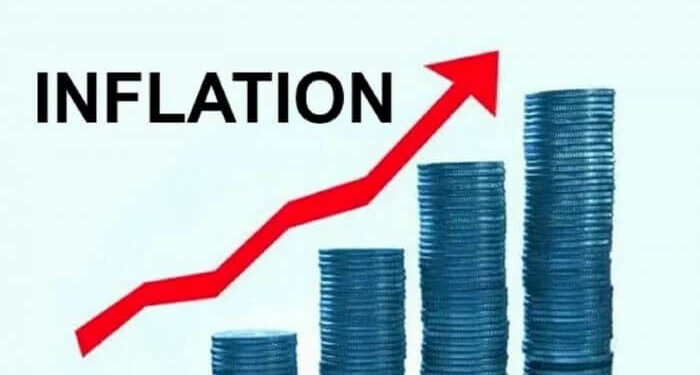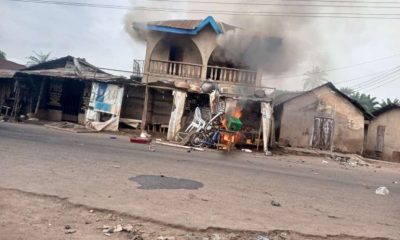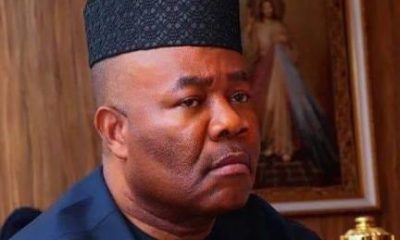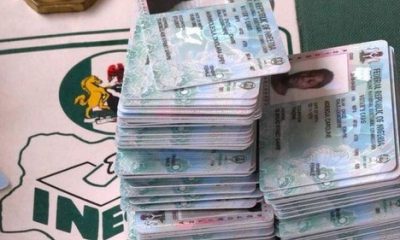News
Nigerians Buy Kerosene At N1,340 Per Litre As Inflation Hits 31.70 Percent

The rise in inflation rate to 31.70 per cent in February, has led to an equal increase in price of Household Kerosene (HHK) to N1,340 per litre.
This would invariably affects the poor Nigerians on how much they would spend in preparing their meals daily.
Data from a newly released report, ‘National Household Kerosene Price Watch’ for February 2024, by the National Bureau of Statistics (NBS) showed that price of household kerosene went from N1,329.53 in January, to N1,340.94 in February, showing an increase of 0.86 per cent.
This is as the inflation rate also rose from 29.90 per cent in January, to 31.70 per cent in February.
According to the Bureau, average retail price per litre of HHK paid by consumers in February 2024, was N1,340.94, showing an increase of 0.86% compared to N1,329.53 recorded in January 2024.
On a year-on-year basis, the average retail price per litre of the product rose by 14.23 per cent from N1,173.89 in February 2023.
On state profile analysis, the highest average price per litre in February 2024, was recorded in Kaduna with N1,866.67, followed by Benue with N1,769.67 and Niger with N1,710.89.
On the other hand, the lowest price was recorded in Bayelsa with N971.00, followed by Rivers with N1,065.67 and Kwara with N1,070.44.
In addition, analysis by zone showed that the North Central recorded the highest average retail price per litre of household kerosene with N1,486.50, followed by the North-East with N1,387.58, while the South-South recorded the lowest with N1,231.24.
The average retail price per gallon of the product paid by consumers in February 2024 was N4,880.02, indicating an increase of 0.19 per cent from N4,870.83 in January 2024.
On a year-on-year basis, this increased by 24.29 per cent from N3,926.23 in February 2023.
On state profile analysis, Adamawa recorded the highest average retail price per gallon of HHK with N6,092.50, followed by Bauchi with N5,910.00 and Kano with N5,779.50.
On the other hand, Delta recorded the lowest price with N4,025.00, followed by Abuja and Ondo with N4,250.00 and N4,400.91 respectively.
Analysis by zone showed that the North-East recorded the highest average retail price per gallon of the product with N5,553.05, followed by the North West with N5,072.23, while the South-East recorded the lowest with N4,518.91.
In recent years, food prices have been on the rise across Nigeria, further worsening due to the impact of government policies such as the removal of subsidies on petrol, among others.
The upward trend in the prices of these staples and other products has weakened the purchasing power of many citizens, making it difficult for many households in the country to afford daily meals.
Removal of subsidies and rising inflation rate, among other factors, have also affected both the official and unofficial markets, leading to a spike in the prices of goods and services across the country.
In its inflation report, the NBS said the contributions of items on the divisional year-on-year level to the increase in the headline index are food & non-alcoholic beverages (16.42 per cent), housing water, electricity, gas & other fuel (5.30 per cent), clothing & footwear (2.24 per cent), and transport (2.06 per cent),.
Others are furnishings & household equipment & maintenance (1.59 per cent), education (1.25 per cent), health (0.95 per cent), miscellaneous goods & services (0.53 per cent), restaurant & hotels (0.38 per cent), alcoholic beverage, tobacco & kola (0.34 per cent), recreation & culture (0.22 per cent) and communication (0.22 per cent).
The percentage change in the average CPI for the twelve-month ending February 2024 over the average of the CPI for the previous twelve-month period was 26.18 per cent, showing a 6.31 per cent increase compared to 19.87 per cent recorded in February 2023.
-

 News2 days ago
News2 days agoOsun Communal crisis: Slain NSCDC operative Buried Amid Tears [Photos]
-

 News4 days ago
News4 days agoKings Worshipping Idols Are Herbalists-Oluwo
-

 News3 days ago
News3 days agoFIDA Calls For Prosecution Of Medical Doctor Accused Of Raping Teenage Admission-seeker In Osun
-

 News2 days ago
News2 days agoNSCDC Officer Killed, Palace Burnt, Others Injured As Communal Clash Erupts In Osun Communities














